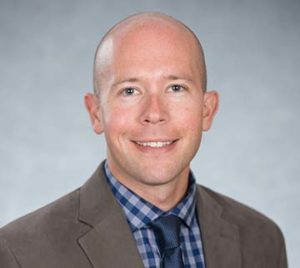February 10, 2019

Readings:
Reading 1: Isaiah 6:1-2a, 3-8
Psalm: Ps 138: 1-2, 2-3, 4-5, 7-8
Reading 2: 1 Corinthians 15:1-11
Gospel: Luke 5:1-11
The opening line of today’s second reading from Paul to the community at Corinth is something that flashes across the expanses of time and space to resonate with us in the twenty-first century: “I am reminding you, brothers and sisters, of the gospel I preached to you, which you indeed received and in which you also stand.” Indeed, just as those early Christians were in need of the reminder, we too would do well to recall the gospel that has been preached to us, which we profess to believe.
In a way, the words the follow in Paul’s exhortation are a “return to the basics,” a refresher of sorts to help his audience remember what is most important and at the heart of our faith. This is a profoundly radical message—radical as in its Latin origins: radix meaning “root.” It is easy to be caught up in the many reasonable (and sometimes unreasonable) frustrations we have with the church as institution or our particular society. What should stay at the core or the root of our faith must be the life, death, and resurrection of Jesus Christ. Each of these three aspects of the Paschal Mystery have to be held together, and each serves as a lens through which to view ourselves and the world around us.
First, the life of Jesus presents us with a pattern of what it means for us to live in accord with God’s will. How Jesus behaved, loved, forgave, healed, and embraced shows us what it means for us to live into our call to be more fully human. This does not mean that Jesus was a pushover or overlooked injustice in his time. Rather, his corrections and admonitions were grounded in a genuine concern for the other, for the community as a whole, and for those most oppressed and marginalized in particular. How we go about working for justice is just as important as the intention in the first place. And Jesus’s life shows us how.
Second, the death of Jesus reveals two important dimensions of our Christian vocation. The first is that doing the will of God will likely “rock the boat” of polite society and unsettle or upset those who benefit most from the systems of oppression and injustice tied to the status quo. We’ve seen this pattern play out in our own time with modern exemplars whose witness (martyrdom) follow closely the footprints of Jesus: Martin Luther King, Jr., Sr. Dorothy Stang, St. Óscar Romero, among others. The second thing is that when faced with the violence that may come our way as a result of following the pattern of gospel living modeled by Jesus, ours is not a call to vengeance or defensiveness to the end. Instead, nonviolent protest requires both standing up for what is right (protest) while resisting the use of force that is commonly the expectation in such conflict (nonviolence).
Third, the resurrection of Jesus—a key and repeated theme in Paul’s writings—affirms for us the divine truth that death does not have the last word. While it is scary to face the unknown, we profess belief in “life everlasting” and “the communion of saints.” Paul reminds us that these aspects of our tradition are part of the root of our faith, and that we should not lose sight of that. We have hope that the love of God extends beyond this life and carries us forward into the next, whatever that may entail.
This last point brings us to the Gospel in which we see the earliest followers of Jesus struggling to make sense of the person before them and the power that he seems to exude. It’s a power that is frightening to them, but a power Jesus contextualizes as a gift given to each of us in order to bring our sisters and brothers deeper into the love of God. May we become fishers of women and men, not in the proselytizing or harsh manner often associated with evangelization. Instead, like Jesus himself, may we become what Pope Francis calls “missionary disciples” (Evangelii Gaudium 120) who bring others to the joy of the Gospel by attraction and not force, by love and not fear.
Rev. Daniel P. Horan, OFM
Assistant Professor of Systematic Theology and Spirituality